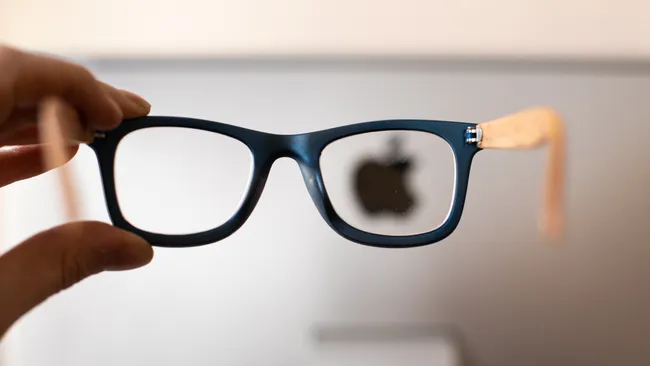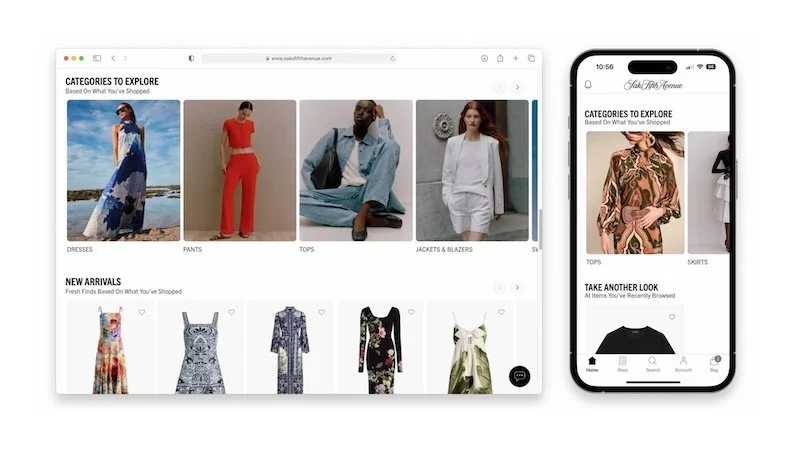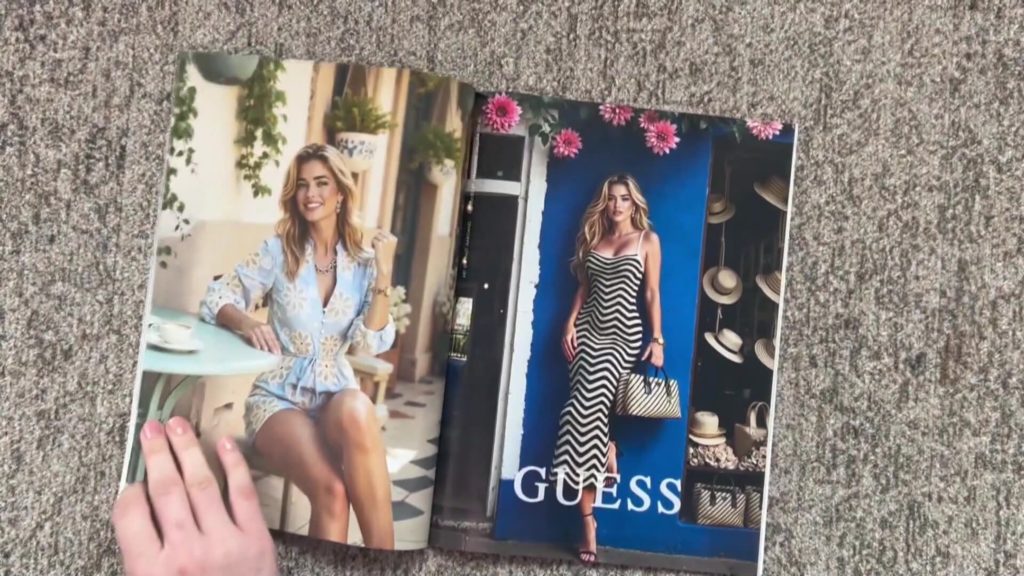Smart glasses patents, Saks AI homepage, AI ethics
Apple and Samsung file patents revealing two different approaches to wearables; Saks gives its homepage the AI treatment; and the disquiet over Vogue's use of AI models rumbles on.
Samsung and Apple file smart glasses patents with contrasting visions
Apple and Samsung have filed new patents that reveal sharply contrasting approaches to next-gen smart glasses. Samsung is prioritising safety and situational awareness, designing AR glasses that use adaptive microphones, sensors, and see-through video to detect dangers like oncoming cars and deliver real-time alerts. Apple, meanwhile, is focused on comfort, precision, and customisation, with patents covering real-time visual calibration, modular components, and even a detachable headband to improve wearability.
Why it matters: As wearables inch closer to becoming mainstream fashion accessories, the battle for the smart glasses market is shaping up to define not just tech adoption, but how style, function, and identity converge in the next era of consumer devices.

Saks rolls out hyper-personalized homepage as AI shopping quietly shifts from reactive to predictive
Saks.com has launched a new AI-powered homepage that adapts in real time to each shopper’s behavior, surfacing personalized products, content, and visuals based on how you browse. It’s part of a wider movement toward hyper-personalized retail, where brands like Saks are investing in tools that don’t just respond to your preferences but anticipate them. From virtual stylists to mood-based product suggestions, shopping is becoming eerily tailored.
Why it matters: This shift promises frictionless luxury, but at the cost of deeper data extraction. As AI learns our habits, feelings, and impulses, the question isn’t just what we’ll buy next, but who decides.

AI models ignite debate over authenticity, diversity, and ethics in fashion
As artificial intelligence reshapes the fashion industry, from customer service to virtual try-ons, AI-generated models are now at the center of a growing ethical and cultural reckoning. The recent Vogue ad featuring a fully AI-created model for Guess continues to spark a backlash, reigniting concerns over job loss, unrealistic beauty standards, and digital forms of cultural appropriation. While some argue AI avatars offer creative freedom and reduce harmful comparisons, critics warn of transparency gaps, erasure of real models, and the risk of brands faking diversity without true representation.
Why it matters: As AI-generated identities blur the line between innovation and exploitation, the fashion world is being forced to confront what authenticity, inclusion, and responsibility look like in an AI-first era.




